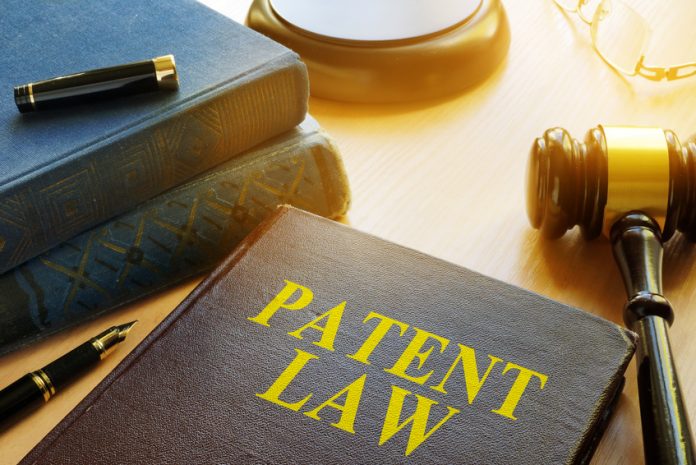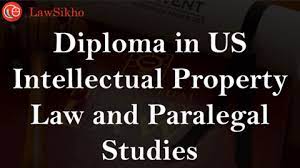This article is written by Sudisha Mukherji, pursuing Diploma in US Technology Law and Paralegal Studies: Structuring, Contracts, Compliance, Disputes and Policy Advocacy from LawSikho. The article has been edited by Prashant Baviskar (Associate, LawSikho) and Dipshi Swara (Senior Associate, LawSikho).
Table of Contents
Introduction
The Bill of Rights comprises the first 10 Amendments to the United States Constitution. These amendments elucidate the rights of American citizens with respect to the American Government and further, set out rules for due process of law. The Bill of Rights and the Amendments can be compared to the fundamental rights granted to Indian citizens by the Indian Constitution. The Fifth Amendment enshrines a number of rights with respect to criminal and civil proceedings, for example, in criminal cases, it promises the right to a grand jury and protects against self-incrimination amongst other things. Another such provision in the Fifth Amendment is the ‘Takings Clause’, as per which- the U.S government cannot ‘take’ and/or seize private property of individuals for public use without just compensation to the property owner.
While the Takings Clause has been standing in the American Constitution ever since its inception, there have been varied opinions from American courts pertaining to the extent to which the Takings Clause can be applied, especially in terms of ‘private property’ and ‘just compensation’. This is especially true in light of intellectual property rights. The question which has been posed repeatedly in various American courts is whether intellectual property, more particularly, are patents and patent holders protected under the Takings Clause? and whether patents are considered ‘private property’ or ‘property’ as per the Takings Clause? These questions are imperative to accord patent holders protection under the Takings Clause.
What is the Takings Clause?
The “Takings Clause” of the U.S. Constitution states simply “nor shall private property be taken for public use, without just compensation.” Even though the Fifth Amendment by itself only applies to actions by the federal government, the Fourteenth Amendment ensures that the Takings Clause is actionable by state and local governments as well. Therefore, when any government- federal, state and/or local wishes to acquire a certain property for public use, the government is entitled to take such property from the individual so long as the individual is compensated adequately for the same. The Takings Clause tries to limit the government’s power to take private property. However, the power of the government to unilaterally take property from an individual is called ‘eminent domain power’.
This ‘Taking’ can happen in two ways- one, which is the physical taking of the property and the second is constructive/ regulatory taking wherein the government can restrict the right of the property owner with respect to the property so that the government action becomes functional.
Essentially, there are three main components of the takings clause i.e the Property, the Purpose and the Just Compensation. The Takings Clause concerns all kinds of tangible and intangible property, including but not limited to personal property, land and easements, contract rights, trade secrets etc. In Armstrong v. United States, the U.S. Supreme Court holds that the application of the Fifth Amendment takings clause is not limited to land and real estate but also to more intangible property, such as financial interests. A “just compensation” for any such property is determined by an assessment of the property’s fair market value. The courts however have refrained from setting up any standardized formula for calculating “just compensation” under the Fifth Amendment.
Generally, for the Takings Clause to be applicable, the property must be taken for the general purpose of ‘public welfare’. In Kelo v. City of New London, 545 U.S. 469 (2005), the Supreme Court allowed the government to take over the property for private cause because the private cause in question was, in turn, furthering economic development and thereby promoting public welfare. However, in most cases ‘public welfare’ has a simpler meaning such as if the government wants to build a new courthouse or a road etc.
Patent infringement by the U.S Government in light of the Takings Clause
According to 35 U.S.C. § 271(a), patent infringement is the violation of a patent owner’s rights with respect to the patent. Making, using, offering to sell, or selling something that contains every element of a patented claim or its equivalent while the patent is in effect, without the consent or permission of the patent holder is patent infringement.
The two provisions, the Takings Clause and Patent infringement are seemingly conflicting provisions, even though they both aim to protect the property/ patent holder. While the Taking Clause authorises the government to ‘take’ a property from an individual it ensures that the individual is entitled to just compensation in light of such taking and similarly, the infringement clause protects the patent holder from anyone taking undue advantage and/or violating the patent holders right. The courts have conflicting opinions on whether patents and patent holders can be protected under the Takings Clause and whether such taking amounts to infringement.
Another important provision to be mentioned here is 28 U.S.C. § 1498. The 28 U.S.C. § 1498 harnesses the Government’s eminent domain power, allowing it to use or manufacture patented devices/processes only in exchange for reasonable and entire compensation to the patent holder, which is essentially a compulsory license. Therefore, in light of this provision, the government cannot infringe a patent and the ‘reasonable compensation’ here can be construed to mean nothing but royalty for the compulsory license. In addition, this provision provides immunity to any third-party company/ contractor of the government from infringement claims. Thus, a third-party company hired by the government can easily infringe a patent without any legal repercussions. 28 U.S.C. § 1498 was a heavily debated provision in the In Zoltek Corp. v. United States.
Schillinger v. the United States, (1894), was an important case with respect to patent infringement by the US Government. Mr Schillinger was granted a patent for an improvement in concrete pavement. He eventually sued the US Government for unauthorised use of the patent for the building of concrete pavement on the Capitol grounds. The court Supreme Court held that a suit for patent infringement cannot be held against the U.S Government because an infringement of a patent is a tort and the Government is exempt from it until it surrenders its sovereign immunity for intentional torts.
Property or not : Takings Clause and patents
Many contemporary Supreme Court decisions have widened the scope and definition of ‘property’ with regard to the Takings Clause and that they cannot be seized without just compensation. In Horne v. Dept. of Agric., the court held that the Fifth Amendment applies equally to personal as well as real property. In this case, the department of agriculture issued a marketing order which authorised the government to reserve a percentage of the raisin crop. The farmers were also offered a share in the proceeds of the sale of reserved raisins. Mr Horne, a farmer, processed his own raisins to avoid the order. However, when the department of agriculture insisted that he was subject to the order, he sued the department and claimed that the order violated his Fifth Amendment rights against uncompensated takings. The department of agriculture held that the order did not act as taking because Horne’s raisins constituted personal property rather than real property. However, the court held that the Fifth Amendment applies equally to personal as well as real property since it deprives the owners of their property rights to “possess, use, and dispose of” the raisins. It was also noted that the government avoided the duty to pay just compensation for the physical taking of property by offering a share in the proceeds of the sale of reserved raisins.
There have been a couple of cases that have questioned whether the invalidation of patent claims in a decision of an inter partes review (a trial proceeding conducted by the Board of the USPTO to review the patentability of the applied patent) constituted inter alia an unlawful in violation of the Takings Clause. In Oil States Energy Services, LLC v. Greene’s Energy Group LLC (2018) the court suggested that- a decision to grant a patent is not a private right, but one involving public right and that patent holders are subject to patent laws which give the USPTO the authority to grant or cancel a patent. However, the court also categorically mentioned that its “decision should not be misconstrued as suggesting that patents are not a property for purposes of the due process clause or the Takings Clause”, again leaving it up to interpretation.
According to 35 U.S.C. § 261, “Subject to the provisions of this title, patents shall have the attributes of personal property”. However, in the Oil States decision, the Supreme Court held that the rule was not absolute and did not reflect Congress’ intent for patents to be treated as personal/ private property.
Similarly, other cases like Christy and Celgene Corp v Peter (2019), have also argued that retrospective application of an inter partes review without just compensation is an unconstitutional taking under the Fifth Amendment. If the patent holder is losing patent rights because the authority found the patent claims invalid after the patent was granted, then the patent holders must be entitled to just compensation.
Conclusion
To answer the question; are patent holders protected from US Government infringement by the Fifth Amendment, the answer seems to be no, patent holders are not protected under the Fifth Amendment. For patent holders to be protected under the Fifth Amendment two questions must be answered- firstly, whether patents are public or private property? And secondly, as per the U.S patent laws, whether the U.S Government can be held liable for infringement? However, in light of 28 U.S.C. § 1498 and the Takings Clause, the answer to both the questions seems to be unfavourable towards the patent holder. Both, the 28 U.S.C. § 1498 and the Takings clause, even though meant for the protection of the patent holder, seem to provide an advantage or power to the Government by providing it sovereign immunity. The Takings Clause also seems to be nullified by the 28 U.S.C. § 1498 provision as well as the concept of compulsory license.
Over the years, some Supreme Court Justices have held a dissenting opinion and stated that the ‘private property’ in the Takings Clause traditionally includes physical or intellectual property. However, there is no concrete answer yet, on whether and/or to what extent is intellectual property and its holders protected under the Fifth Amendment.
References
- https://www.law.cornell.edu/wex/takings
- https://www.law.cornell.edu/supremecourt/text/155/163
- https://www.law.cornell.edu/uscode/text/35/261
- https://content.next.westlaw.com/Document/If1f6ffad24b411e9a5b3e3d9e23d7429/View/FullText.html?contextData=(sc.Default)&transitionType=Default
- https://www.lexology.com/library/detail.aspx?g=186ddbd9-7137-4429-847c-39f61e94d312
- https://www.ipwatchdog.com/2019/11/21/celgene-corp-v-peter-federal-circuit-leave-ptab-patent-takings-issue-another-day/id=116308/
Students of Lawsikho courses regularly produce writing assignments and work on practical exercises as a part of their coursework and develop themselves in real-life practical skills.
LawSikho has created a telegram group for exchanging legal knowledge, referrals, and various opportunities. You can click on this link and join:
https://t.me/joinchat/J_0YrBa4IBSHdpuTfQO_sA
Follow us on Instagram and subscribe to our YouTube channel for more amazing legal content.
 Serato DJ Crack 2025Serato DJ PRO Crack
Serato DJ Crack 2025Serato DJ PRO Crack











 Allow notifications
Allow notifications


